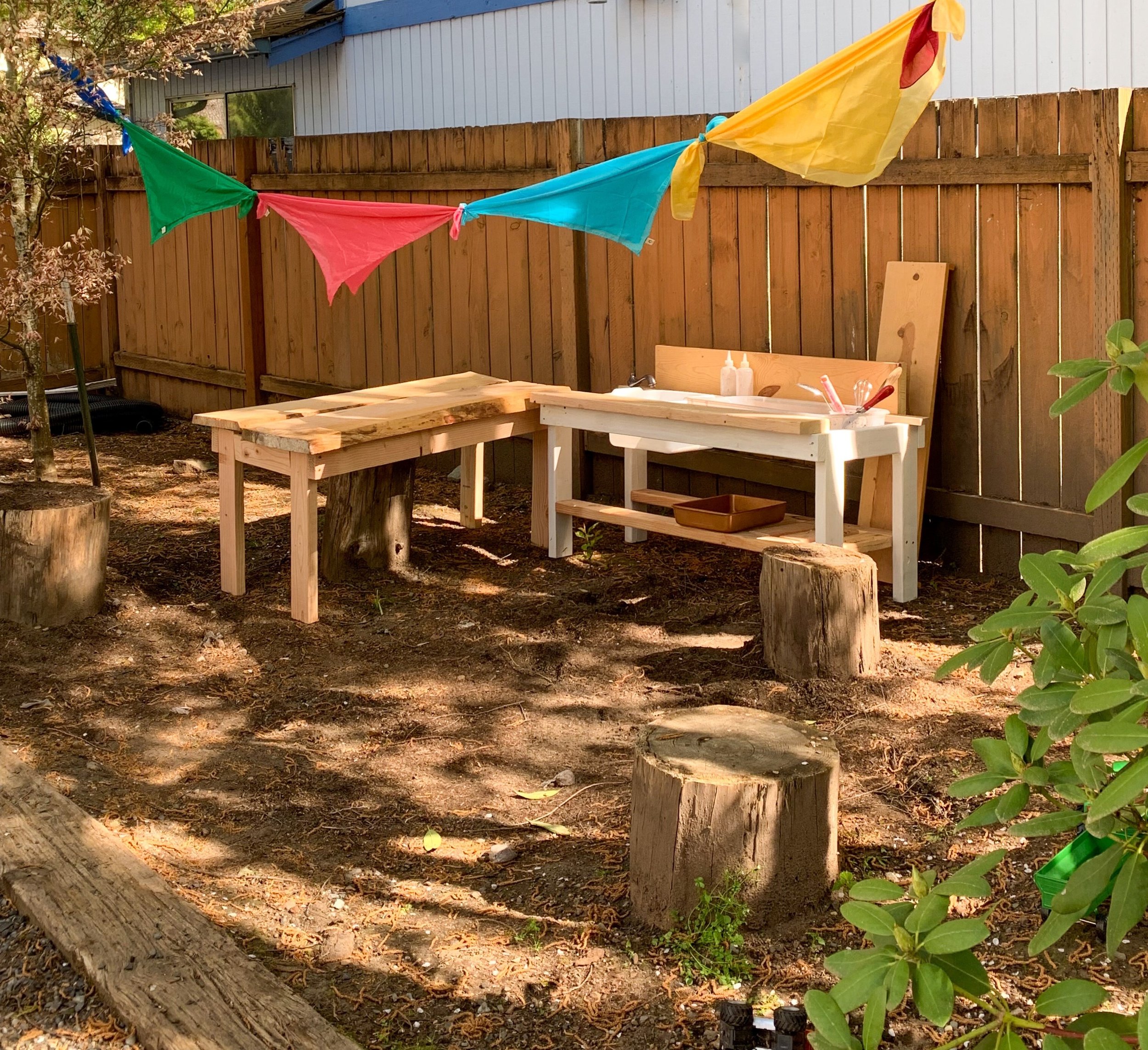Educational Philosophy
A play-based program
Waldorf Inspired
Rooted in Nature & Art
The teaching methods at Huckleberry Hollow are informed by a carefully curated educational philosophy, shaped by Ms. Emily’s extensive teaching experience and thorough research in education.
Ms. Emily holds a K-12 Washington state teaching license, taught Art Education in public schools in the Lake Washington School District, has experience teaching in a Waldorf learning environment, and has worked with the homeschooling community. The innate wisdom that nature is good for the soul has always resonated with Ms. Emily. However, it was only after becoming a parent that she began researching the specific benefits of outdoor experiences for children and discovered that in fact, nature play is integral to cognitive development. The outdoors provides a rich canvas for exploration, fostering problem-solving skills and enhancing executive functions1.
Nature Play
Little Huckleberries spend half of their day outside, engaging their senses and connecting with nature. Primarily, this time is spent in unstructured play. They dig in dirt, squish mud between their fingers, draw with chalk, paint rocks, swing on swings, bake mud pies, discover bugs, build forts, and splash in puddles. These curious explorers are not merely playing; they’re actively shaping their brains and understanding the world around them, conducting impromptu science experiments, and discovering cause and effect. In summary, outdoor play isn’t just about fun—it’s a powerful tool for holistic development. So, rain or shine, let’s embrace the mud, the rain gear, and the child-driven play that fuels our students’ curiosity and growth.
Play as Learning
Play is the child’s work, according to Waldorf philosophy. Through unstructured play, children develop essential skills such as social interaction, language, and emotional regulation.
Imaginative play nurtures creativity and problem-solving abilities. Whether building forts, pretending to be animals, or creating imaginary worlds, children learn by experimenting, adapting, and collaborating.
Artistic expression often emerges during play. Whether it’s drawing with sticks in the dirt, molding clay, or dancing freely, children explore their inner worlds and external realities.
Waldorf Education
Steeped in holistic principles, Waldorf Education emphasizes experiential learning, artistic expression, and a harmonious balance between head, heart, and hands. Our students engage in imaginative play, seasonal celebrations, and hands-on activities that nurture their whole being.
Our small class prepares snack together, chopping/mixing/kneading. We create, often with natural materials like wool and beeswax ,and rejoice in music and storytelling.
Little Huckleberries find a true sense of community at Huckleberry Hollow.


